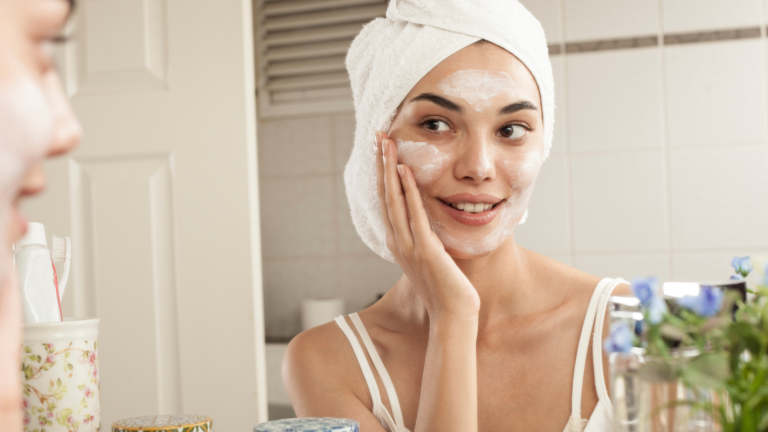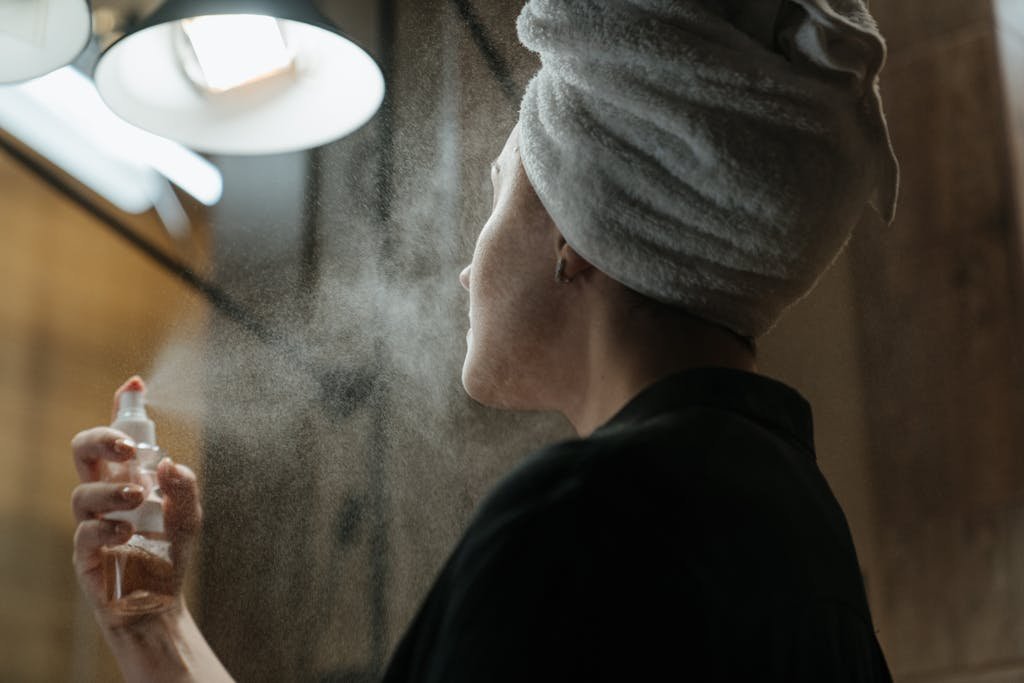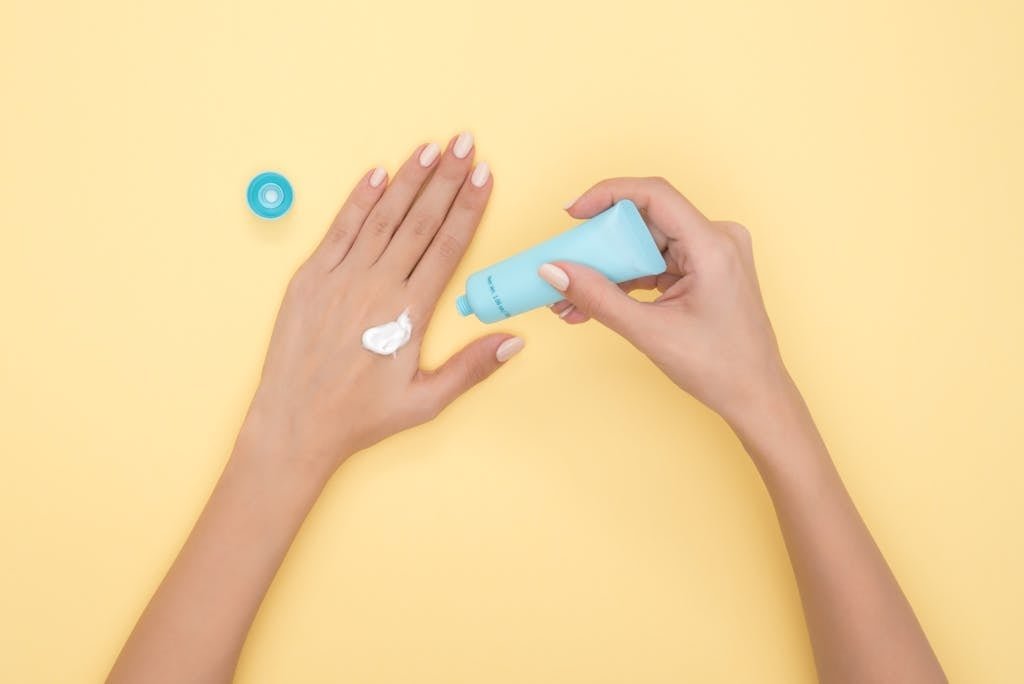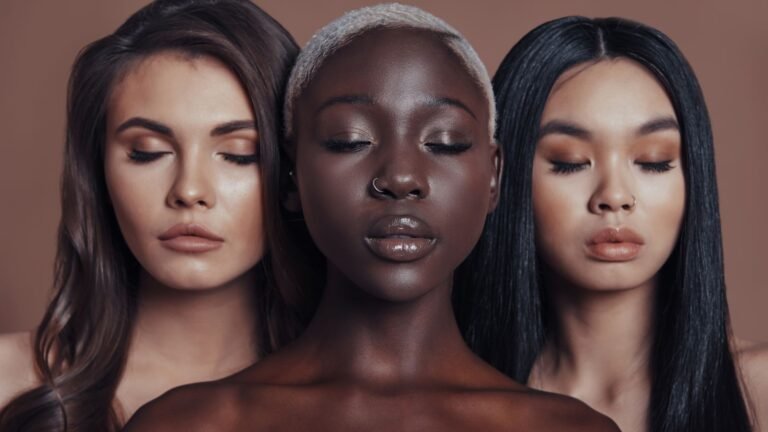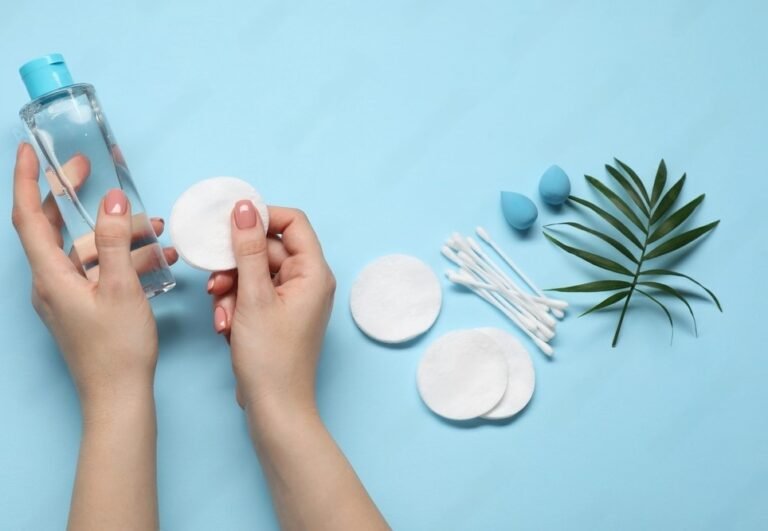Best Sensitive Skin Care Tips & Must Have Products
This post may contain affiliate links. That means that if you click on a link and purchase something I recommend, I will receive a small commission at no extra cost to you. As an Amazon Associate, I earn from qualifying purchases. This helps keep my website up and running and is very appreciated. Thank you for your support! Disclaimer
Today, I decided to approach things from a slightly different angle and zoom in on sensitive skin. Perhaps it’s because I’m feeling a tad sensitive myself these days, amidst the chaos of wedding preparations and house hunting (trust me, it’s no walk in the park).
Let’s call it as it is—I find myself welling up or getting teary-eyed at the slightest provocation. So, I figured it’s time to extend some empathy to all my fellow sensitive souls out there with delicate skin and dedicate an article just for you.
In this article, we’re going to cover the basics as to what sensitive skin is, what to look out for, and a couple of my favorite products on the market in each category that would be best geared and suited for you.
If you don’t have time to read this post right now, why not save it for later?
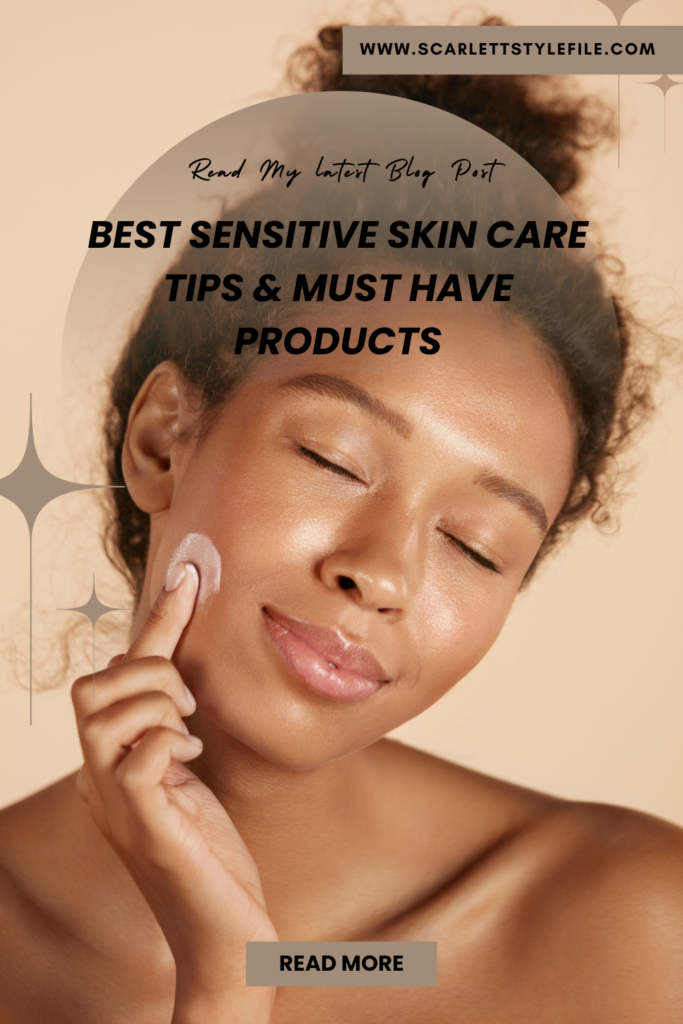
Best Sensitive Skin Care Tips & Must Have Products
what is sensitive skin

So, sensitive skin. It’s like being on a strict post-surgery diet, stepping into a lavish restaurant or a sushi joint, tantalizing dishes spread out before you, yet you can’t indulge. My heart goes out to those with sensitive skin; they walk into stores like Walmart, Ulta, Sephora, or Target, surrounded by an array of skincare products, but feel trapped, afraid to approach any of them. I see you, and I empathize because it’s a tough situation.
People with sensitive skin tend to experience redness, inflammation, dryness, stinging, burning, itching, and even acne breakouts, pretty much everything.
new skincare products and your skin

The reason why people with sensitive skin tends to react more intensely because its protective barrier isn’t as robust as that of “normal” or oily skin types. Therefore, individuals with sensitive skin should approach new skincare products with great care and patience, allowing time to observe how their skin reacts.
And that’s why I always say, get to know your skin before you decide to jump in and incorporate 20 new skincare products into your skincare routine overnight because your skin will freak out and the results won’t be pretty.
sensitive skin vs. sensitized skin

Sensitive skin, as we just explained, refers to individuals prone to reactions like inflammation, redness, or breakouts triggered by various ingredients.
On the other hand, sensitized skin indicates a specific reaction to a particular ingredient. Once your skin becomes sensitized to this ingredient, you develop an allergy to it. It’s worth noting that not everyone with sensitive skin becomes sensitized, although the chances are higher. It doesn’t imply an automatic sensitivity to all fragrances, despite the common belief. While those with sensitive skin should consider avoiding fragrances, individuals like myself with normal skin may not need to steer clear of them.
The crucial disparity lies in understanding the distinction between sensitive and sensitized skin. Sensitization, albeit somewhat ironically, can be seen as a peculiar blessing since it alerts you to avoid that specific ingredient, allowing you to seek out products that omit it from their formulations.
how to discover if you have sensitized skin
To find out if you really have sensitive skin, you should visit an allergist or a dermatologist and have a patch test done. This test doesn’t involve pricking; instead, they’ll place patches on your skin to check for any allergic reactions to different allergens.
what to avoid if you have sensitive skin

First off, fragrance can be a biggie. It’s best to avoid it if you’re super sensitive because it can cause reactions. But here’s the tricky part: fragrance can hide under different names on ingredient lists. It might not just say “fragrance.” It could be labeled as essential oils or balsam of Peru. Even terms like “perfume” or “parfum parfait” can mean fragrance. So, if you’re checking ingredients, keep an eye out for sneaky terms.
Alcohol gets a bad rep, but it’s not all bad. There are different kinds, like denatured alcohol, which you might see as alcohol denat or SD. These aren’t the same as fatty alcohols. But watch out for denatured alcohols because they can be harsh on your skin. They’re often used to help other ingredients penetrate your skin better, but they can also be drying, especially if your skin’s already sensitive.
Next, be wary of foaming washes that contain sodium lauryl sulfate, or SLS. These can be too harsh and strip your skin, making sensitivity worse.
Another thing to watch out for is tingling agents, like menthol or peppermint. If you see a product boasting a “cooling sensation,” it likely contains these. They can be irritating, especially for sensitive skin. You can do a quick test with your toothpaste—if it’s minty and makes your skin around your mouth react, it’s a sign you might be sensitive to these ingredients.
Lastly, if you’re really into the nitty-gritty of skincare and have the time, check out the pH of your cleansers. Ones with a high pH can also be too harsh and harm your skin’s barrier. So, it’s best to steer clear of those too.
how to test A new skincare products
So how do we know which products we want to incorporate into our routine? Here’s my take: go slow, try a little patch test near your ear, or even right under it. Do this daily for about a week to see how your skin reacts because it might not show its true colors at first. If all seems good, then go ahead and slather it all over your face. But give it at least a week or two before bringing in something new. Yeah, I know, it’s a drag, it eats up time, it’s a bit of a rollercoaster emotionally, I get it. But trust me, your skin will thank you down the road.
claims to look for when shopping for sensitive skin products
Firstly, if your skin is sensitive, look for products made specifically for it.
Secondly, forget “unscented” and go for “fragrance-free.” Unscented stuff might still have chemicals to hide smells. They’re trying to trick you, but we’re onto them. Fragrance-free is the real deal.
Another thing: if you see the eczema association stamp on a product, it’s likely good for sensitive skin.
Then, check for “hypoallergenic” on the label. It’s like finding a cozy blanket for your face – always a win.
And finally, when it comes to products claiming to calm redness, they can’t legally say they calm inflammation without being considered as medical stuff. So they use fancy words like “soothing” or “redness reducing” instead. Sneaky, right? So ; Just stay alert and read between the lines.
Best skin products for sensitive skin
Let’s jump in quickly to some of my favorite roundups of products.
best Face Cleansers for Sensitive Skin:
I really like this guy. I always talk about Vanicream because I think it’s a really good cleanser for sensitive skin. It doesn’t have a lot of stuff in it like strong smells or lanolin. Lanolin is like wool alcohol found in Aquaphor, not Vaseline.
I don’t really care about parabens, but if you do, don’t worry, this cleanser doesn’t have them. It’s also free from other stuff like dyes and formaldehyde. It’s super gentle, maybe even too gentle. If you wear a lot of makeup, you might need to use another cleanser afterward to really get it all off.
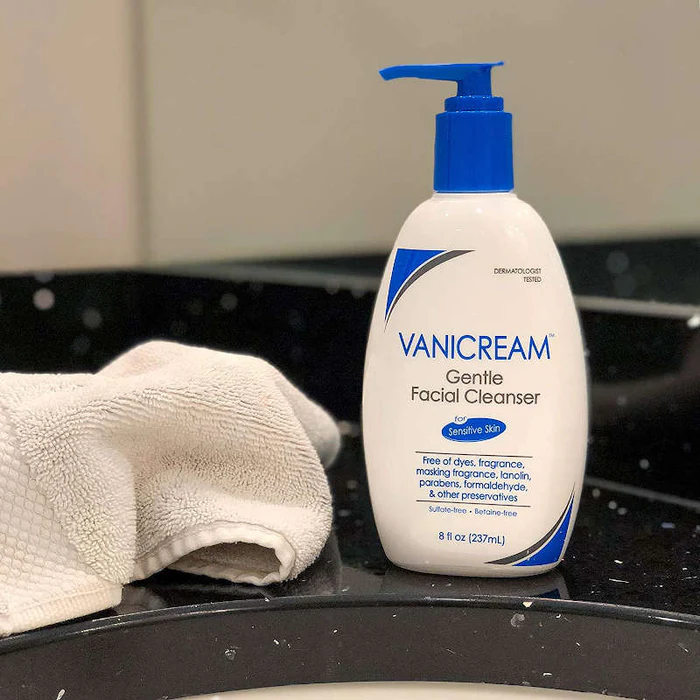
That’s where Bioderma micellar water comes in. I use the Sensibio H2O one because it’s made for sensitive skin and doesn’t have any fragrance, unlike some other French products. It’s really gentle and won’t irritate your skin.

Using both Vanicream and micellar water works well for me when I’m wearing light makeup, like just under-eye concealer, powder, eyebrow pen, eyeliner, and mascara.
And then there’s CeraVe’s hydrating cleanser, which a lot of people talk about. It’s good because it has ceramides in it, and you definitely want to use ceramides to help to restore your skin barrier.
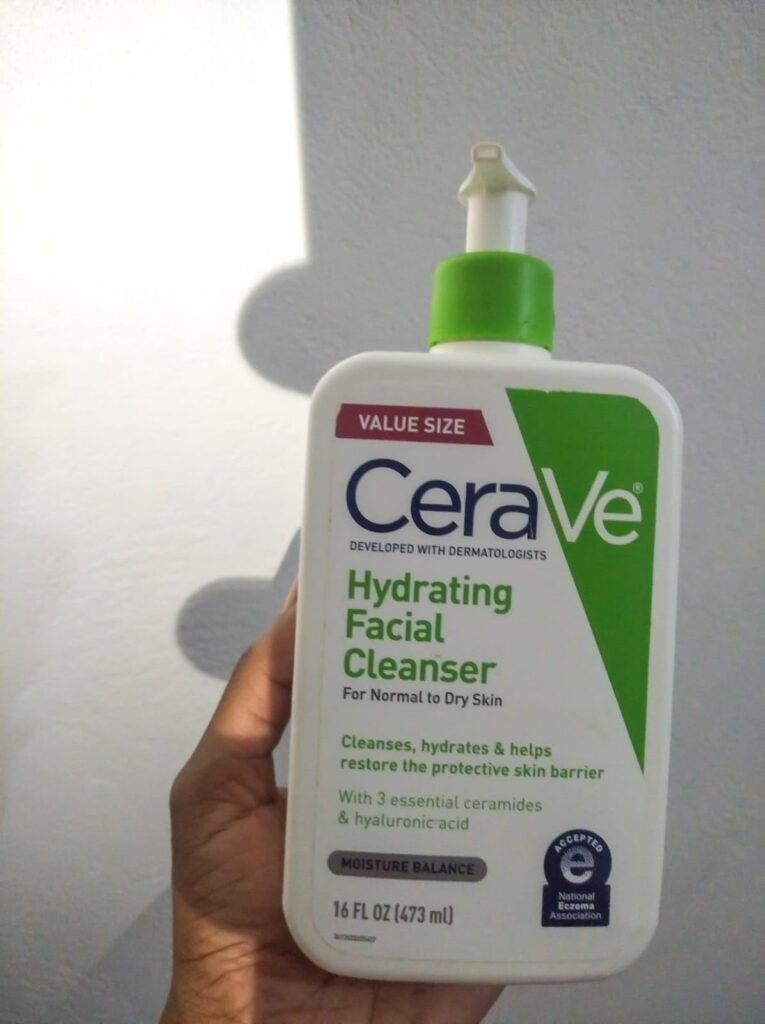
best Serums for Sensitive Skin:
If you’re into hydrating serums, but your skin gets sensitive with hyaluronic acid, you should check out my article on it. Look for “sodium hyaluronate” in the ingredients list, which means it’s there.
Instead, you might like Aveeno’s Calm and Restore Triple O Serum. It’s super soothing, great for eczema, and made for sensitive skin. But, beware: the dropper it comes with isn’t great. You might want to switch it out for a pump.
Another serum I recommend is Dr. Jart’s Cicapair Serum. It’s got centella asiatica, which helps with redness. It’s not officially labeled as anti-inflammatory, but it works that way. The dropper is better quality than Aveeno’s, and the serum itself is green to help counteract redness. It’s awesome for repairing dry and sensitive skin. My fiancé even suggests it to his patients.
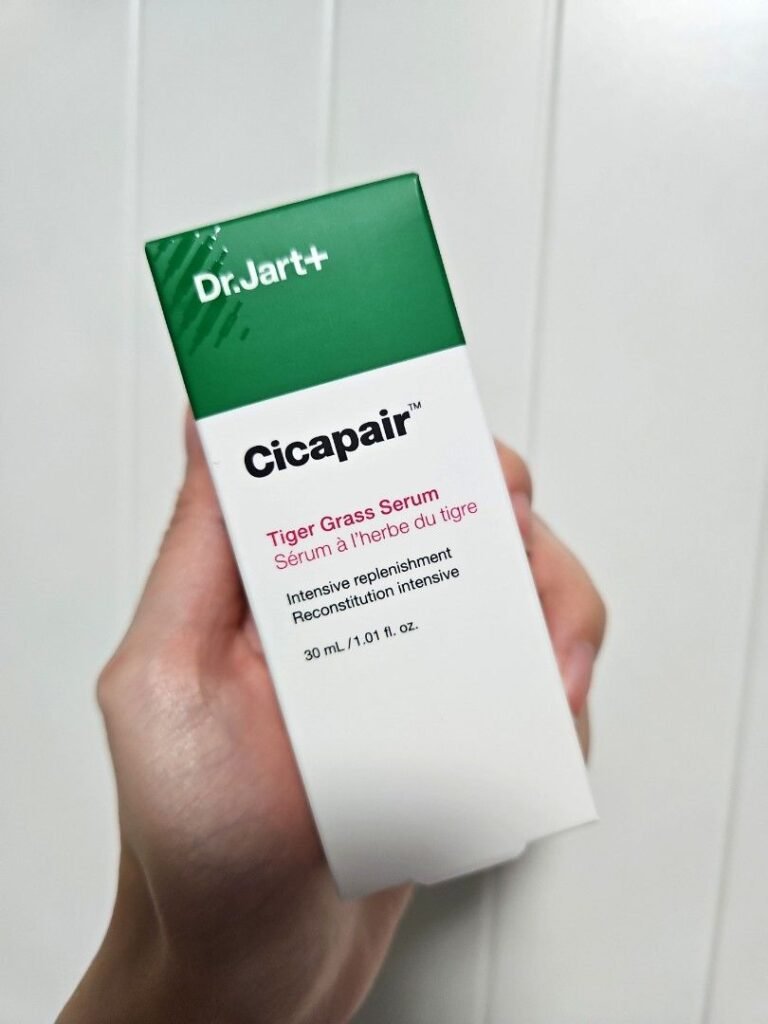

best Chemical Exfoliant for Sensitive Skin:
I think exfoliants have gone a little bit wild these days, but some are going overboard and harming their skin barrier. So you want to go with something where less is more.
Lactic acid is a very gentle chemical acid. Good Genes by Sunday Riley is not going to be one of those massive powerhouses, but it’s very gentle and it’s going to help you lightly buff your skin.
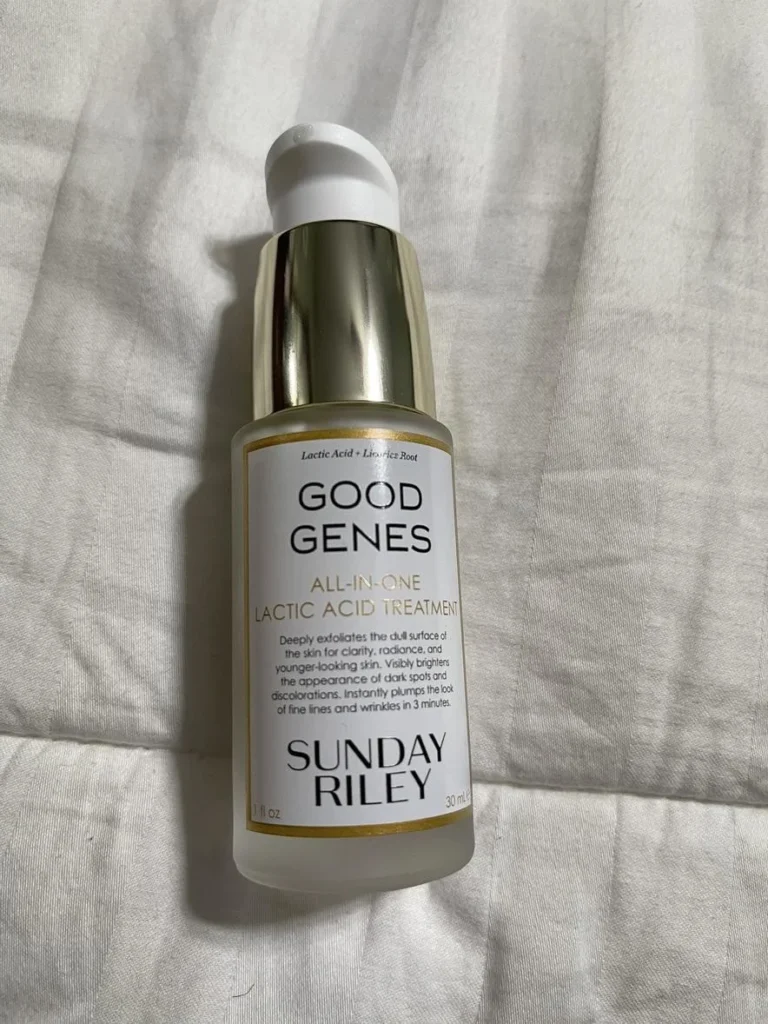
Now, onto salicylic acid. Typically, I’d advise caution due to its potential drying effects. However, I stumbled upon a product by First Aid Beauty containing two percent salicylic acid, claimed to be safe for sensitive skin. While I haven’t personally tested it, it could be worth exploring, especially for those prone to acne and sensitivity. These First Aid Beauty treatment pads could be a worthwhile consideration for you.

best Moisturizers & Sunscreen for Sensitive Skin:
And finally. You want to imagine your skin is as delicate as a baby’s bottom that needs extra care. You want to protect it like you’re wrapping it up in a cozy blanket. Moisturizers are like a special treatment for your skin, especially if it’s really dry or sensitive.
One option I recommend is Dr. Jart ceramidin cream. It’s made with ceramides, which are great for dry skin and sensitive skin. It comes in a tube that looks shiny, and the cream itself is thick. But if your skin is very oily, this might not be the best choice for you. However, if your skin is dry or sensitive, it could work well.
Just be cautious if you’re super sensitive because it has other ingredients, like citrus scent, which might not agree with everyone. But overall, it can help repair your skin if it’s really dry and needs some extra care.
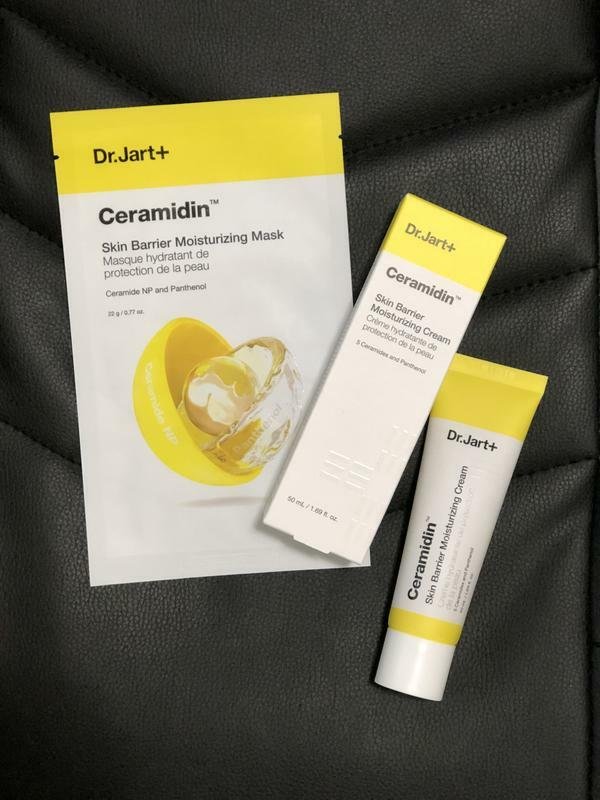
If you’re worried about any smell, your best option is plain Vaseline. It’s likely the cheapest and quickest way to help your face or skin.

If you have really sensitive skin where your protective layer is weak, Vaseline is just petroleum jelly without any added lanolin. Unlike products like Aquaphor that contain lanolin, Vaseline might be worth trying out on your face.
If your skin is super sensitive, damaged, dry, irritated, flaky, or stinging, you could try using Vaseline for a week to see how your face reacts. Then you can decide if you don’t like it or if it actually helped your skin. Just a suggestion.
Number three is the Cicalfate Cream. You can get it at your local drugstore. It’s made by Avene.
Next up is the Cicaplast Baume B5 by La Roche-Posay. It’s a thick and rich cream. It feels like it wraps everything up. It’s not for someone who wants a light cream. It contains zinc which might make your skin look white, but it can also reduce inflammation. So, if your skin is very sensitive, keep that in mind.
And if you want to pamper yourself, consider Skinceuticals Triple Lipid. It’s great for getting your skin ready for summer. It’s full of ceramides, which help rebuild your skin’s protective layer.
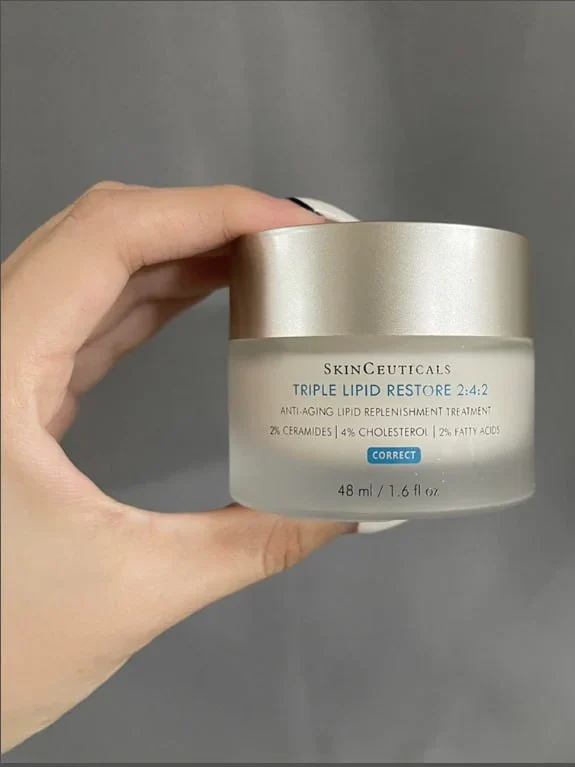
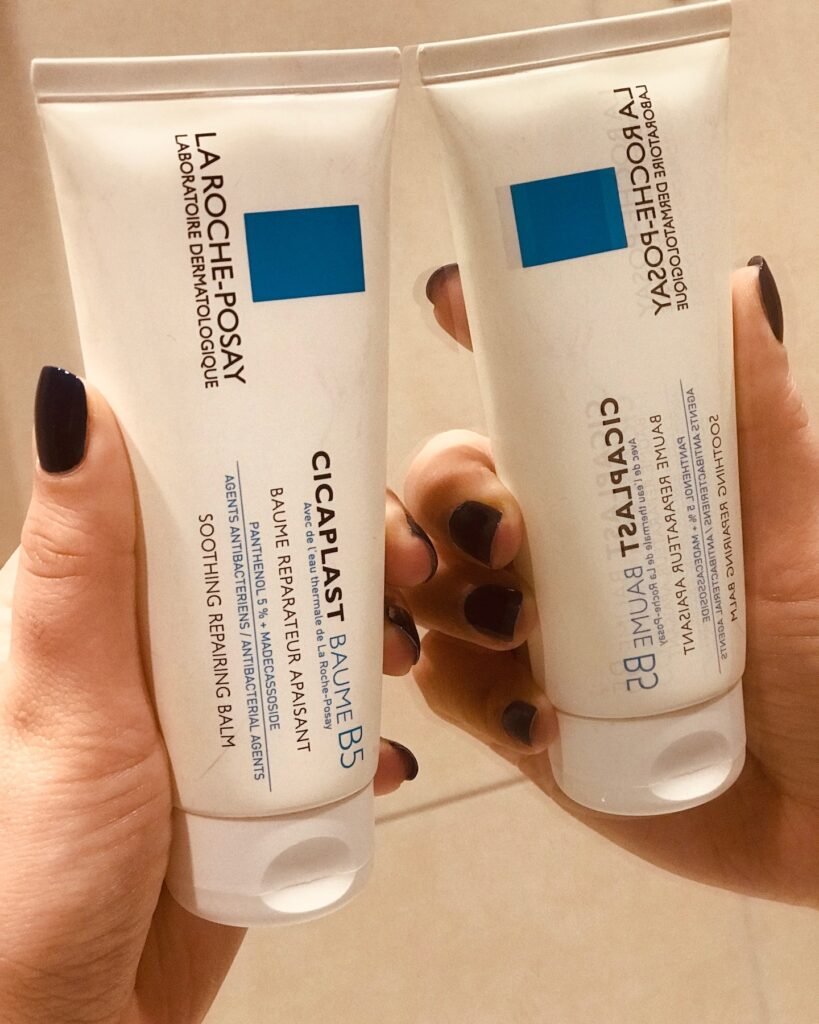

And finally, a sunscreen, a good sunscreen that you can use if you have sensitive skin is Cetaphil daily facial moisturizer with SPF 20. It’s not very strong, but it’s a good option if you can’t use most sunscreens in the U.S. without getting a reaction. This sunscreen uses minerals like titanium dioxide and zinc dioxide. It has a tint, so it might not match everyone’s skin tone well. Still, if you’re very sensitive and don’t spend much time outside, it’s worth trying to use this sunscreen every day.

The bottom line
I hope you sensitive souls out there can now sort of walk through a beauty aisle with a little bit more confidence, and I hope this article was helpful.
My readers’ feedback matters to me. If you have any questions or thoughts, please leave a comment below.



